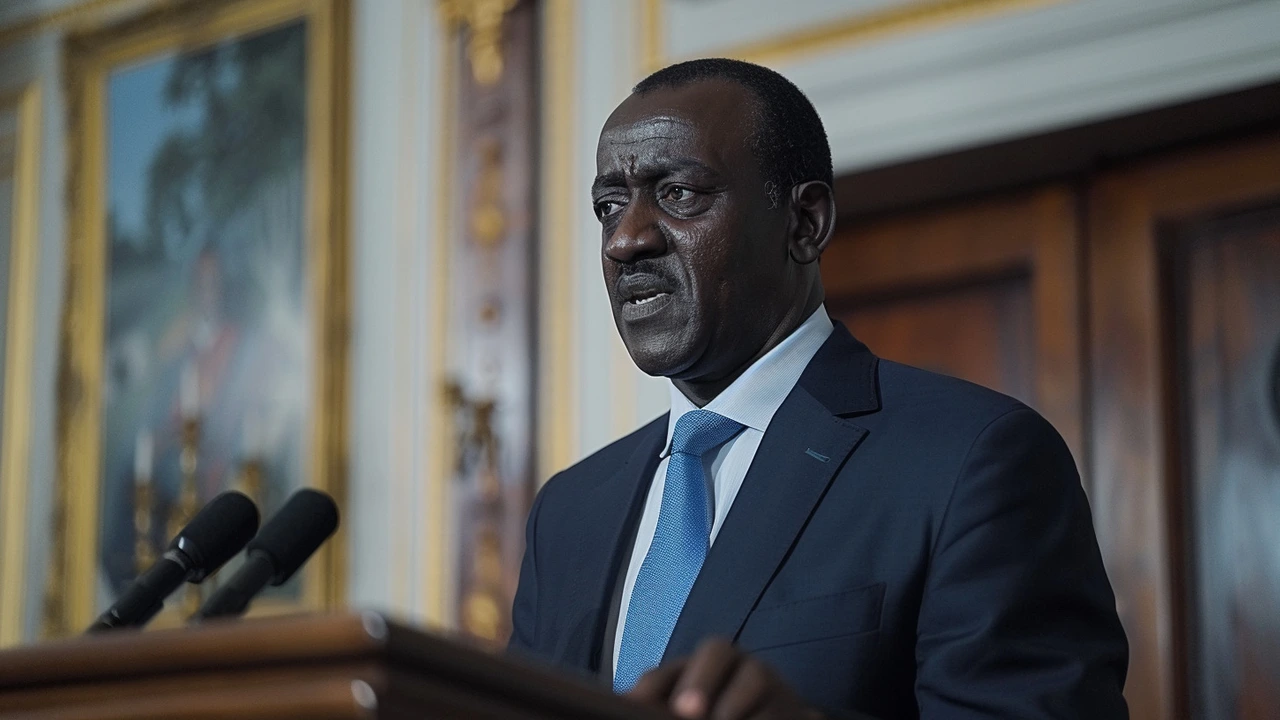President Ruto's Directive on Salary Review
President William Ruto recently made headlines by instructing the National Treasury to critically review a gazette notice issued by the Salaries and Remuneration Commission (SRC). The notice had recommended a significant increase in the salaries of state officers, a move that has now been halted amid forecasted fiscal challenges. This decision is in line with the broader economic strategies of the government, especially after the withdrawal of the Finance Bill, 2024. Ruto's directive underscores a commitment to reevaluating fiscal priorities in a time of budgetary constraints.
Background of the Controversy
The SRC's recommendation for salary increments, gazetted in August 2023 and set to take effect from January 1, 2024, has been a contentious issue. According to Public Service Cabinet Secretary Moses Kuria, the proposed salary adjustments were not feasible given the current economic conditions. Kuria highlighted during the Annual Wage Bill Conference in April that the government was already grappling with an inflated wage bill, which they aim to reduce to 35% of the country's revenue.
During the conference, discussions focused on the necessity for austerity measures in the wake of increasing economic pressures. It was established that maintaining such a high wage bill was unsustainable and would adversely affect the country's financial health. The proposed salary increments would further exacerbate these issues, placing an additional burden on the already strained fiscal framework.
The Financial Implications
The withdrawal of the Finance Bill, 2024, has only added to the financial uncertainty. This bill was expected to provide a comprehensive framework for the government's fiscal policies and revenue generation strategies. Without it, the government faces significant challenges in managing its expenditures and revenue streams. Consequently, the idea of increasing state officers' salaries at this juncture appears unfounded, both economically and strategically.
The National Treasury's review of the SRC notice is a crucial step in understanding the broader impact of such salary adjustments. It's not just about the immediate cost implications but also about the long-term economic stability of the nation. The decision to halt the increments reflects a balanced approach to managing the country's finances, prioritizing sustainability over short-term gains.

Moses Kuria's Standpoint
Public Service CS Moses Kuria has been vocal about the impracticality of the proposed salary hikes. Kuria cited an already inflated wage bill and emphasized the need for austerity during his talks at the Annual Wage Bill Conference. He pointed out that increasing the wage bill would be counterproductive to the government's efforts to bring it down to 35% of the nation's revenue. Kuria's stance aligns with the broader fiscal policies aimed at reducing government expenditures and better allocating resources for essential services and developmental projects.
Aligning Fiscal Priorities
In light of the current fiscal constraints, the government is focusing on aligning its financial strategies with the country's economic realities. By proposing a review and potential halt to the salary increments, the administration is signaling its commitment to prudent fiscal management. This approach not only ensures that government spending is kept in check but also sets a precedent for future fiscal policies.
The Annual Wage Bill Conference had laid the groundwork for these policy decisions, highlighting the importance of sustainable wage bill management. It underscored the need for austerity measures and a disciplined approach to fiscal policy, both of which are crucial in navigating the current economic landscape.

The Role of the National Treasury
The National Treasury's role in reviewing the SRC notice is pivotal. It involves a comprehensive analysis of the proposed salary increments' financial implications, taking into account the broader economic context. The objective is to ensure that any adjustments align with the government's long-term fiscal goals and do not jeopardize the country's financial stability.
This review process is expected to be thorough, considering various economic indicators and projecting the potential impact on the national budget. By doing so, the National Treasury can provide informed recommendations to the President and other key stakeholders, facilitating informed decision-making.
Future Outlook
Looking ahead, the government's focus will likely remain on sustainable fiscal practices. The decision to halt the SRC-recommended salary increments is a step towards achieving financial stability. It reflects a cautious approach to economic management, prioritizing long-term gains over immediate, short-lived benefits.
As the government continues to navigate these fiscal challenges, there will likely be more emphasis on prudent spending, efficient resource allocation, and strategic planning. This balanced approach is crucial in ensuring the country's economic resilience and ability to meet future financial demands.

Conclusion
President William Ruto's directive to review the SRC's salary increment notice for state officers marks a significant step in addressing the country's fiscal challenges. With the National Treasury undertaking a detailed analysis, and Public Service CS Moses Kuria advocating for austerity, the government is taking a proactive stance on financial management. As the country moves forward, these measures aim to ensure sustainable economic growth and stability, reflecting a commitment to sound fiscal policies and responsible governance.










Write a comment